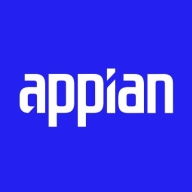

Appian and BizTalk Server both offer essential solutions in the realm of business process management and integration. Appian appears to have an advantage in rapid application development due to its low-code framework, while BizTalk Server is noted for its robust integration capabilities.
Features: Appian facilitates rapid application deployment with minimal coding effort through its low-code framework, offers advanced process modeling with BPMN 2.0 compliance, and integrates seamlessly across platforms. BizTalk Server excels in its orchestration features and reliable integration across different environments, with robust message transformation and a comprehensive adapter framework.
Room for Improvement: Appian could enhance UI customization for more personalized user interfaces and improve debugging in SAIL forms and team collaboration. BizTalk Server faces challenges in performance with large data volumes, cloud integration, and scalability, which may impact modern enterprise demands.
Ease of Deployment and Customer Service: Appian provides deployment flexibility across public, private, and hybrid clouds, coupled with well-regarded customer support options. BizTalk Server, being primarily on-premises, may lack agility but provides effective customer service, albeit at potentially high costs for complex integrations.
Pricing and ROI: Appian is considered a cost-effective investment offering quicker ROI through its rapid development capabilities and flexible pricing models. BizTalk Server, while beneficial in extensive integrations, might involve higher initial costs due to its complex licensing model, potentially making cloud-based alternatives more cost-efficient for some enterprises.
Using Appian is saving us five full-time employees, which is significant since we currently have only four team members.
They see return on investment in terms of cost savings, time savings, more efficient processes, and more efficient employees.
Appian is very efficient, allowing us to build a lot of applications within a financial year, making it cost-effective.
Now the direction is to move away from BizTalk Server to IBM WebMethods, which has more features compared to BizTalk Server.
BizTalk Server's ROI is comparatively higher than Boomi and Workato.
I would give Appian's customer support 10 out of 10 due to their next-level support.
The technical support for Appian rates as 10 out of 10 because they have a great support team.
Their customer service is responsive, and the team is very prompt for support.
On a scale of one to 10, Appian rates as a nine for scalability.
Our volume has increased by 20% in the two years since using Appian, and it can handle the increased volume effectively.
Appian is scalable, but it depends on how you build your applications.
It is time for low-code, no-code, and a quick go-to-market should be faster.
We have tested Appian during peak usage and off-peak times, and we have not experienced any issues such as lagging or system disruptions.
It depends on how it has been designed and how it has been configured.
The stability of Appian would rate as nine, as it's a stable environment.
BizTalk Server is good for small companies but not for big companies.
BizTalk Server's stability rates about eight or nine out of ten.
It has room to improve for use cases where the users are public facing, where anonymous users could come to a site and run a business workflow or interact with some data.
If Appian can suggest the country based on that address, it would significantly decrease error rates in processing remittance.
I would like to see more enhancement in the user interface to allow more freedom in designing the sites and pages.
BizTalk Server needs improvements, especially because we use it for EDI messaging, and it would be very useful to have enhanced tracking capabilities for message tracking and archiving of messages.
We initially planned to move to Azure Integration Services, but there are challenges with AIS, so now we are evaluating WebMethods IO.
Appian provides value for money, is easy to use, has a straightforward setup procedure, and offers great support from the Appian team.
The price of Appian, on a competitive landscape, is a little bit on the higher side for companies, rating maybe a 6.5.
The pricing of Appian is based on the number of users and generally ranges from 70 to 100 USD per user per month.
The only thing I heard is that it's not inexpensive.
Appian also utilizes AI for business users, providing a feature called process each view, enabling business users to create their own dashboards, reports, and gain insights from their data and processes using artificial intelligence.
After switching to Appian, it can extract data from MT103, eliminating the need for manual data entry.
The zero-code integration feature is remarkable, allowing for ease of data transfer and workflow enhancement.
Boomi has advantages over BizTalk Server because it is more flexible, low-code, no-code, easy to implement, and has a fast go-to-market.
BizTalk Server offers workflow functionality that I find very effective for process automation.
| Product | Market Share (%) |
|---|---|
| Appian | 5.0% |
| BizTalk Server | 1.0% |
| Other | 94.0% |

| Company Size | Count |
|---|---|
| Small Business | 20 |
| Midsize Enterprise | 9 |
| Large Enterprise | 42 |
| Company Size | Count |
|---|---|
| Small Business | 7 |
| Large Enterprise | 9 |
Appian is a unified low-code platform and solution used by businesses to build enterprise applications and workflows. This product adapts to the needs of clients and the technologies they are already using to combine their data in a single workflow and maximize resources. The platform has four main components through which it transforms the work process for companies of various sizes. They are:
Appian is utilized across a diverse set of industries, including automotive and manufacturing, energy and utilities, education, financial services, telecom and media, transportation, retail, insurance, healthcare, and life sciences. The most frequent use cases of Appian are customer journey, governance, risk and compliance, operational efficiency, supply chain, distributed order management, and environmental, social, and governance (ESG) management.
Appian Features
Appian has various features that allow users to create solutions for their businesses. These features can be separated into a few groups according to function, including automation, low-code application development, and integrations and data. Some of the most frequently used features of Appian include:
Appian Benefits
The benefits of using Appian include:
Reviews from Real Users
A practice leader - digital process automation at a computer software company values Appian highly because the product is easy to develop, low-code, and has a good user interface.
Alan G., an advisory board member at Codecon VR, Appian offers a clear application life cycle, easy to learn documentation, and comes with a fundamentals course.
We monitor all Process Automation reviews to prevent fraudulent reviews and keep review quality high. We do not post reviews by company employees or direct competitors. We validate each review for authenticity via cross-reference with LinkedIn, and personal follow-up with the reviewer when necessary.